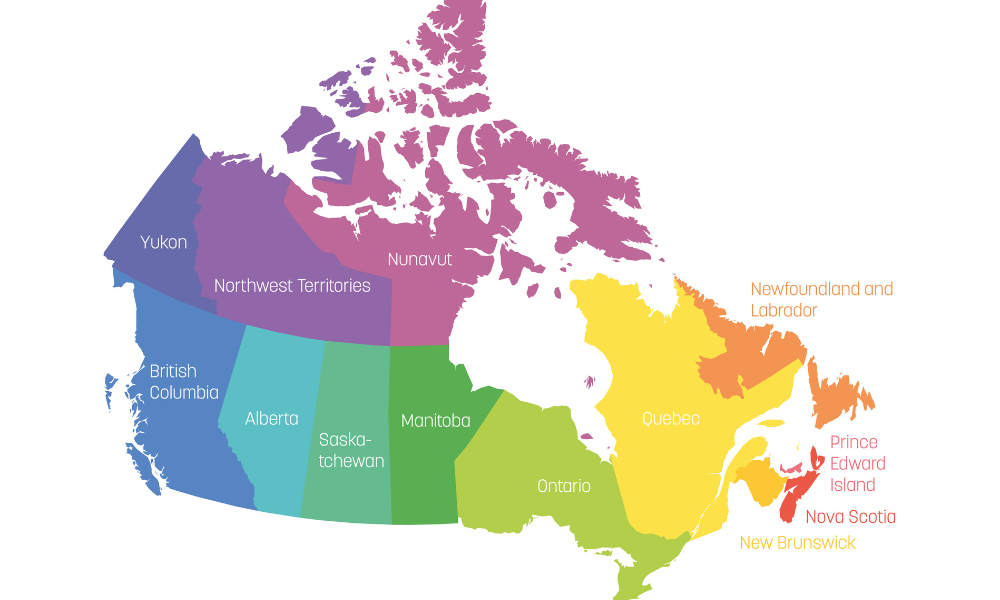Workplace knowledge theft is widespread, intentional and hurting knowledge sharing at work, Canadian research shows

A new study by Canadian researchers has shown that knowledge theft – distinct from other commonly known toxic workplace behaviours – is not only highly prevalent among workers, it’s also highly damaging to organizations.
“I hadn’t realized it was so pervasive until we started the research,” says David Zweig, professor of organizational behaviour and human resources management at the University of Toronto. Zweig conducted the study along with two colleagues, involving over 1,500 participants in seven separate samples.
“One of our first studies was a big qualitative study where we … [found] just example after example after example of people experiencing this intentional theft of their ideas or work and not being given credit for their work.”
In one study, 91% of participants said they had either been a victim, a perpetrator, or a witness to knowledge theft. In another, 87% had personally experienced it.
“This is not a behaviour that is infrequent,” says Zweig. "It happens a lot as we interact with each other in organizations and organizational life.”
Workplace knowledge theft: intentional, and rarely addressed
Knowledge theft is not a new idea, but until now it has generally been grouped together with other toxic workplace behaviours such as bullying and harassment. For this research, Zweig and his colleagues developed the first validated scale to measure knowledge theft on its own.
“It is a distinct behaviour,” he says. “So you could have someone, a colleague who steals my ideas or steals my work, or takes credit for my work, but doesn’t necessarily do other bad stuff.”
The study found that knowledge theft is often deliberate, even if partially;.Zweig’s team gathered data from both victims and perpetrators of knowledge theft: “They knew they were doing it. It was very intentional,” he says, adding that even when the intent is unclear, victims typically perceive having their ideas or work stolen as deliberate, with significant consequences.
"There often is an element of intention here, and then people will assume it's intentional, and so the negative impact on the victims of this is going to be as if it was intentional, whether or not it was supposed to be or not.”
Not only that, the effects of this behaviour follow employees even after they leave the environment where the knowledge theft occurred. The study found that workers who had had their ideas or work stolen at past jobs carried those experiences to new roles.
“So it doesn’t even necessarily have to happen in the organization we’re currently working in,” Zweig points out.
When victims of knowledge theft strike back
The study's findings confirm that knowledge theft has a chilling effect on collaboration and overall company vibe.
"The findings have significant organizational implications, as they shed light on a unique and highly detrimental form of interpersonal deviance that not only undermines employee trust and morale but also poses a serious threat to the success of knowledge management initiatives," the study concludes.
"Organizations must recognize the risk that knowledge theft poses to their intellectual capital and adopt proactive strategies to foster a culture of ethical behavior, protect knowledge assets, and support employees in rebuilding trust and collaboration after such events."
Employees who have been victims of knowledge theft will engage in such retaliatory tactics as "defensive silence”, Zweig warns..
“They will stay quiet when they’re asked for their ideas or their opinions," he says.
"They will engage in knowledge hiding, where they will actively play dumb or be evasive when asked for their ideas or opinions, because they’re trying to protect what is theirs.”
The consequences extend beyond withholding knowledge into damaging territory if idea theft is allowed to go on for too long.
“People who have been burned, who have been victims of knowledge theft, are more likely to engage in what we call counterproductive workplace behaviors,” Zweig says.
“They’ll talk badly about [others], they might withhold helping other people … all in an effort to deal with the fact that their own work has been stolen.”
Leadership plays defining role in idea theft prevention
Zweig noted that organizational culture and leadership norms significantly influence how often idea theft occurs.
If knowledge theft is tolerated, and even awarded, in organizations to the extent that it is a normalized part of company culture, it will be a difficult task for management to correct.
“[If] people are okay taking ideas or getting credit for other people’s work, I don’t think that there’s a lot of recourse for people who feel that they’re victims of it, to speak out and say, ‘Hey, wait a second. That was my idea,’” he says.
“Sometimes it might be a leader who has taken credit for our work. And so there are power issues involved there. Sometimes we don't know if they intentionally did it or not, so we might be reluctant to speak up. We’re afraid to speak up because we might get punished for trying to assert ownership over our ideas or our work.”
Building a workplace culture of attribution and collaboration
According to Zweig, the first and most crucial step for HR leaders is simply recognizing that knowledge theft exists – and encouraging employees to call it out when it happens.That can help shift organizational norms, he says: “If you see something, say something.”
Leaders who demonstrate this kind of accountability can reduce the chances that employees will withhold their ideas out of fear. Which is why it is crucial for leaders to model acknowledgment of peer and subordinate contributions.
“Leaders have to acknowledge that this occurs and call it out when it actually happens,” he explains, adding that he personally makes a point to highlight the work and contributions of his team during public recognition, because he knows that doing so encourages continued collaboration and openness.
“There’s nothing that kills motivation or future performance more than not being acknowledged for our efforts and our ideas and our work.”
Re-evaluate reward structures
Reward structures also play a role in encouraging or discouraging knowledge theft; when teams often collaborate on projects, individual-based performance recognition can inadvertently encourage employees to take sole credit for joint work.
This is a big problem because most organizations reward performance in this way, Zweig says. He notes that when people are rewarded individually – even within a team environment – they’re more likely to overstate their own role or downplay their colleagues’ contributions.
Zweig suggests that HR leaders consider revising reward systems to include team-based incentives that reinforce cooperation and shared success.
He also points to emerging structural and technological solutions that organizations can adopt, such as internal systems that track contributions like a database or digital platform where employees can submit and timestamp ideas.
Whichever way employers decide to address knowledge theft in their organizations, it’s crucial they do, Zweig stresses, because the consequences of unacknowledged work contributions can be so damaging.
“Victims of knowledge theft are going to be unwilling to share their knowledge and information in the future, because they've been burned by this,” he says.
“So that has an impact on knowledge management and how we transfer knowledge in an organization, because it's going to have a stifling effect.”




